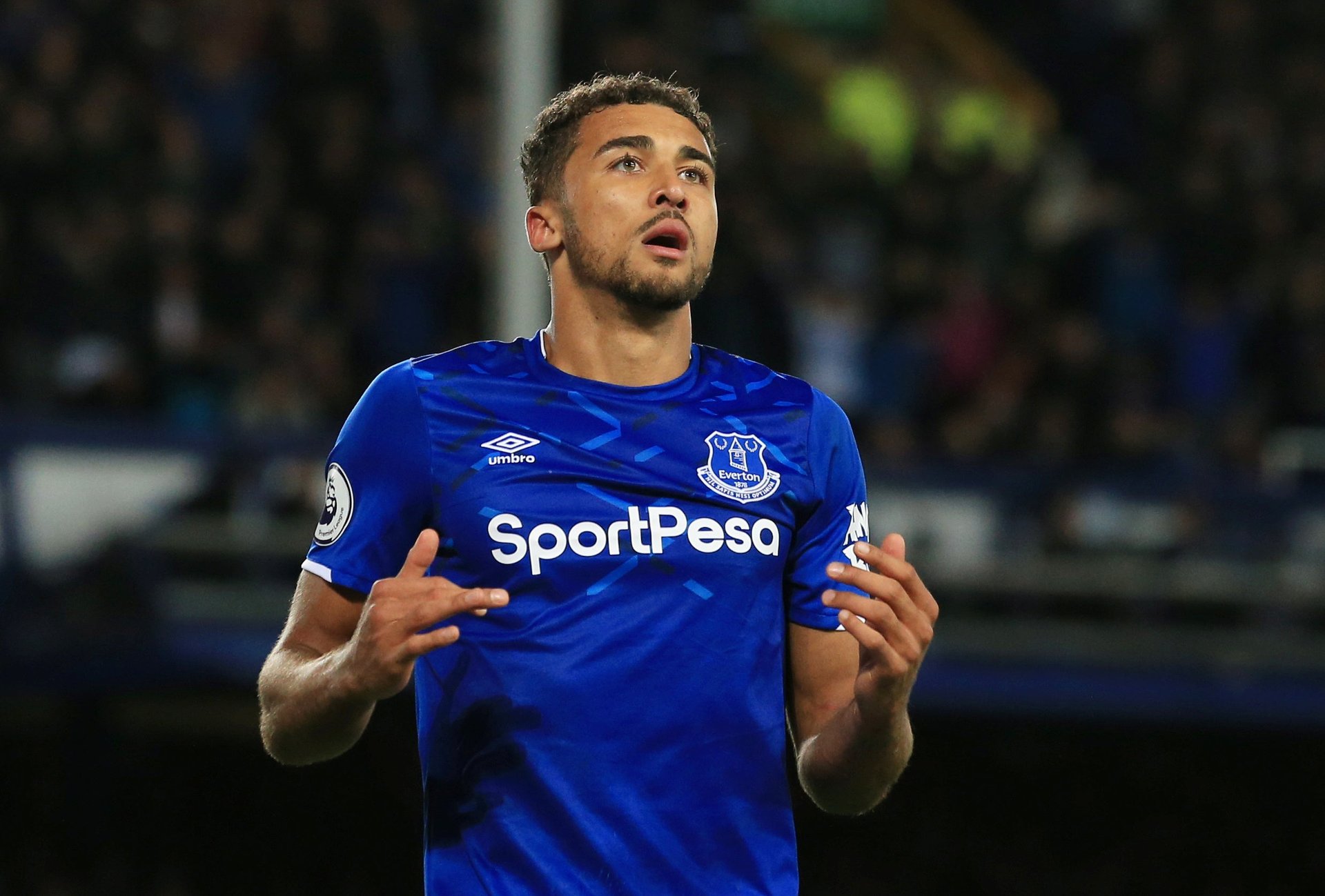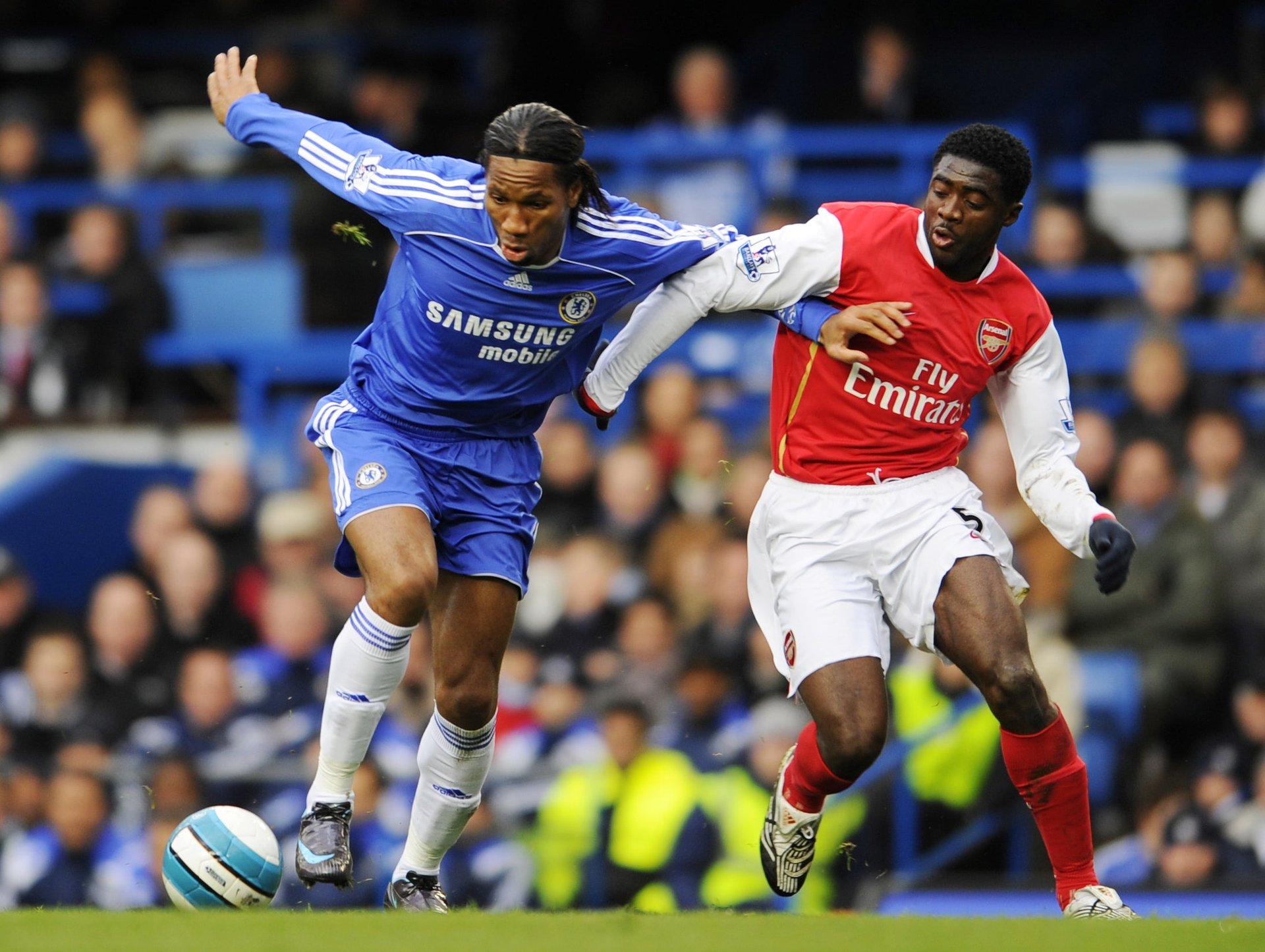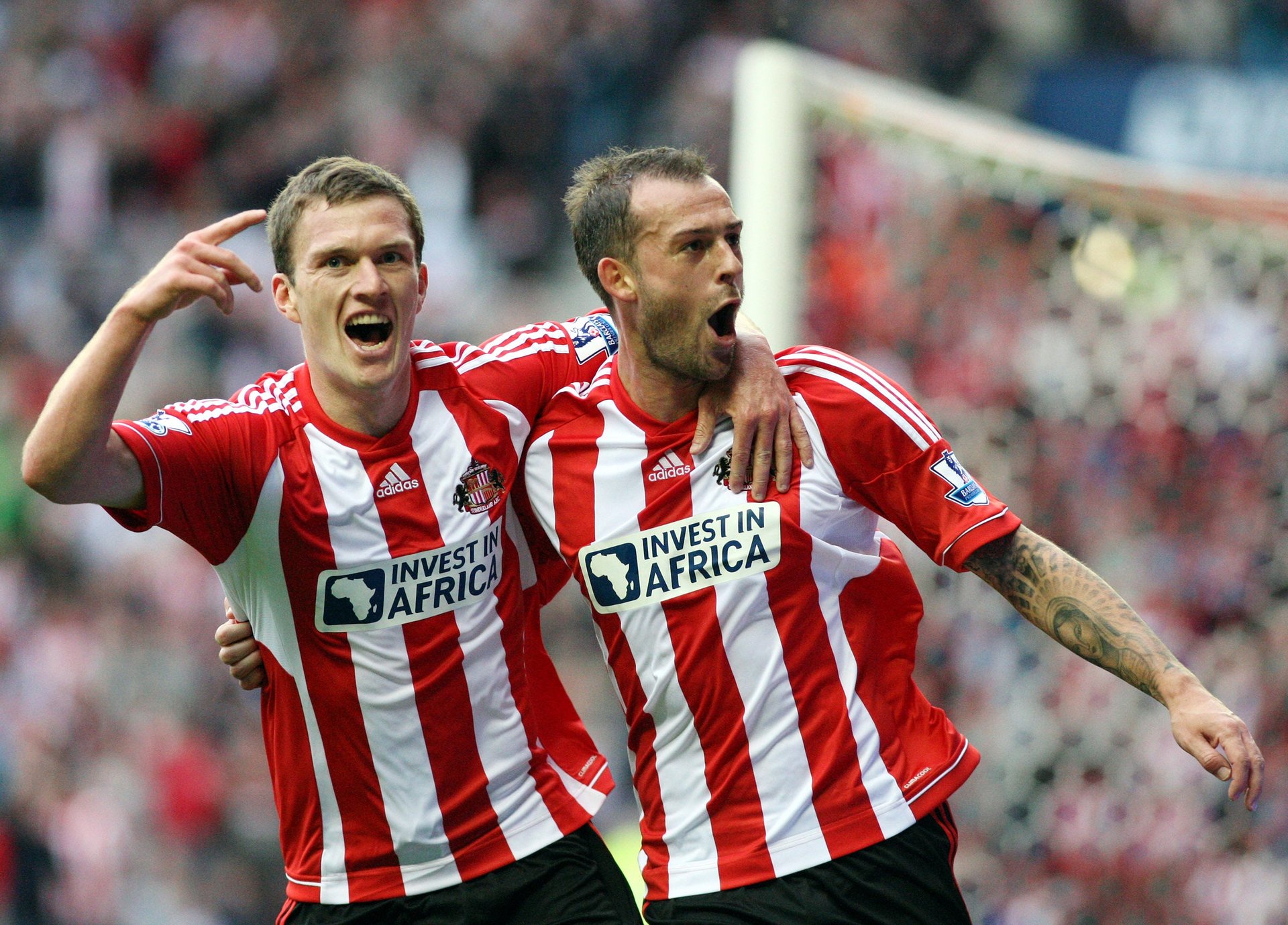African brands spend over $40 million a year to advertise in the world’s richest soccer league
It’s hard to miss the SportPesa logo at an Everton FC home soccer match in the English Premier League.


It’s hard to miss the SportPesa logo at an Everton FC home soccer match in the English Premier League.
The Kenyan sport betting firm’s logo is slapped on the team’s shirts and across the stadium as part of a five-year £48 million ($62 million) deal as Everton’s main sponsor. It’s also one of many such deals which see African brands partner with clubs in the English Premier League as a marketing tactic.
Over the past two decades, the Premier League has grown to enjoy unrivaled popularity across the continent among hundreds of millions of fans who support English clubs. With soccer being the national sport in many African countries, the Premier League (which was founded in 1992) and its clubs soon became institutions of sorts among fans by virtue of being readily available on terrestrial television in the 1990s. Clubs like Manchester United, Arsenal, Liverpool and Chelsea have become household names everywhere on the continent.
The league’s popularity has held firm even though the cost of broadcasting league games has rapidly spiked. SuperSport, the main broadcasters of the Premier League in most sub-Saharan African countries is estimated to have paid £296 million ($381.3 million) to air games for the 2016-2019 broadcast cycle—44% more than it did for the 2013-2016 cycle. In fact, airing Premier League games alone has become a cornerstone marketing asset in the pay TV business across Africa
For several African brands, the feverish interest in the league even across several social classes is a major marketing opportunity to reach local consumers. Quartz Africa estimates brands targeting customers in African countries and African-owned brands spend over $40 million each year on some of the world’s richest clubs that already generate well over $1 billion a year in commercial partnership revenues alone.
Kenya’s SportPesa is looking beyond its home base with regards its sponsorship. Its foray into England was fueled by ambitious expansion of its gambling brand into the United Kingdom. After emerging as a dominant sports betting player across East Africa, SportPesa struck sponsorship deals with Hull City (before it was relegated from the league) and then Everton, to raise its profile in the UK in a bid to compete with well-established betting institutions including Ladbrokes and William Hill.
Leveraging the Premier League’s popularity also provided SportPesa with a marketing outlet amid a clampdown on outdoor and social media advertising in Kenya as part of measures to control the rise of betting addiction locally.
Local connections
In most cases however, regional partnership deals with Premier League clubs are aimed at reaching audiences in markets at home on the continent. Clubs that have African stars on their roster are a particular attraction, says Kelvin Watt, managing director for Africa and Asia at Nielsen Sports, a global marketing intelligence firm. Wise to the local connection, Premier League clubs are also increasingly leaning on their raft of retired African stars as marketing tools on the continent, Watt adds.

It’s a factor that’s likely come into play for Arsenal which has four major ongoing regional partnerships. In addition to the club’s successes in the late 1990s and early 2000s, the club has always had extra appeal given an array of past and present African stars on its roster from Nigeria’s Nwankwo Kanu to Côte d’Ivoire’s Kolo Toure and Gabon’s Pierre Emerick Aubameyang. One of Arsenal’s ongoing regional partnerships is with WorldRemit, the digital money transfer service founded by Ismail Ahmed, a UK-based entrepreneur originally from Somaliland.
For its part, Tecno, the Chinese-owned flagship brand of Transsion Holdings, Africa’s top phone maker, is playing a waiting game after striking a partnership with Premier League champions Manchester City in 2016. Despite recent success thanks to funding from oil-rich Arab owners and previously having Ivorian Yaya Toure and Nigerian striker Kelechi Iheanacho on its books, the club’s support across the continent lags compared to other top English clubs. “You can’t bet against Manchester City continuing to be successful and that will eventually translate to a larger fan-base [in Africa],” Watt says.

In some cases, regional partnerships are hinged entirely on the strength of a player’s personality. Nobody typifies that more than Egypt’s Mo Salah whose global stock has risen since joining Liverpool two years ago. Thanks to record-breaking goalscoring performances, Salah’s boots have been displayed at the British Museum and he’s been credited with reducing Islamophobia in the UK. All of this has translated to a larger than life profile in Egypt: he effectively finished runner up in Egypt’s 2018 presidential election with over a million voters writing in his name.
By extension, Liverpool’s supporter base has spiked in Egypt too, resulting in at least two regional partnership deals with Alex Bank, one of Egypt’s largest financial institutions and Tatweer Misr, a major Cairo-based real estate development firm.
Attempts at fostering regional partnerships on the continent are not always smooth-sailing though—just ask Sunderland. In 2015, the club, launched an ambitious campaign, including building sports parks in Tanzania, to proactively grow its fan-base across Africa. Sunderland’s Africa ambitions started with a £2.5 million kit sponsorship deal in 2012 with Kenyan oil firm, Tullow which saw the club’s jerseys branded with “Invest in Africa” for the 2012/13 season.

For its part, Sunderland was unabashed about its intentions. “Everyone follows Manchester United, Arsenal, Liverpool or Chelsea but after those, the rest of us in the Premier League are pretty much the same. What we want is to be that next club which everyone wants to support,” Gary Hutchinson, Sunderland’s former commercial director, told the BBC at the time. The move ultimately proved futile partly as a result of Sunderland’s lack of enduring success with the club relegated from the Premier League just two years later.
Counting costs
One recent example captures the perceived appeal of Premier League clubs as marketing vehicles: After signing a $39 million “Visit Rwanda” sleeve sponsorship with Arsenal last year, the Rwanda Development Board claims it has recouped over 100% in marketing benefits and has already seen a 5% increase in visitors from the UK. The deal courted controversy locally but went ahead amid public criticism of the financial outlay given poverty levels in Rwanda with a per capita income of around $700.
Similarly in 2016, Chad—one of the world’s poorest countries—chose to become the jersey sponsor of a French soccer club FC Metz, amid widespread local criticism.
Globally, Premier League clubs remain prime marketing attractions and revenue magnets. In Deloitte’s latest Money League report, nine of the top 20 ranked teams were Premier League clubs and, cumulatively, the the five biggest Premier League clubs on the rankings earned over $1 billion in commercial revenues, including sponsorship deals.
But while multi-million dollar partnership deals with Premier League clubs appear to be obvious, even if expensive, marketing home-runs, measuring the returns are not so straightforward. “Sponsorship is not a precise science…it’s very hard to isolate the effect of a sponsorship deal,” says Simon Chadwick, professor of sports enterprise at Salford Business School and former editor of the International Journal of Sports Marketing and Sponsorship. “Correlation is much more evident between price discounts and sales—they’re tangible and it’s easy to account for correlation. But while sponsorship deals are very good for raising awareness, enhancing brand recall and generating eyeballs, the precise effects of sponsorship are subject to more considerable debate.”
Pricey partnership deals with Premier League clubs are also often criticized as coming at the expense of local soccer leagues. It’s an argument that Chadwick says has some merit. “If we take any of the deals going to the Premier League, effectively that’s a leak from local economies. [Local leagues] will benefit more if the money was spent locally rather than globally.” For their part, several local soccer leagues are struggling or in decline mainly due to perennially poor organization and a lack of professionalism which has eaten away at brand value and hobbled fan interest. To make matters worse, these leagues face the stark reality of competing with the Premier League for local audiences.
Yet, even though no soccer league on the continent can come close to rivaling the wealth and reach of the Premier League and so are much less attractive propositions, fractions of the amounts spent on these Premier League partnerships will prove transformative for African soccer economies. Watt estimates regional partnerships between African brands and Premier League clubs can be priced at up to £5 million ($6.4 million) annually. In SportPesa’s case, its sponsorship agreement with Everton is the most the most lucrative in the club’s 140-year history with the betting company paying £9.6 million per year through to 2022.
But despite the scale of planning and spending that African brands put into sponsoring Premier League clubs, key aspects of these deals are often scuttled by the long-standing travel difficulties that Africans often face. “A lot of times, brands run promotions and competitions but [local] winners of hospitality packages at Premier League clubs are unable to get visas,” Watt says.
Sign up to the Quartz Africa Weekly Brief here for news and analysis on African business, tech and innovation in your inbox